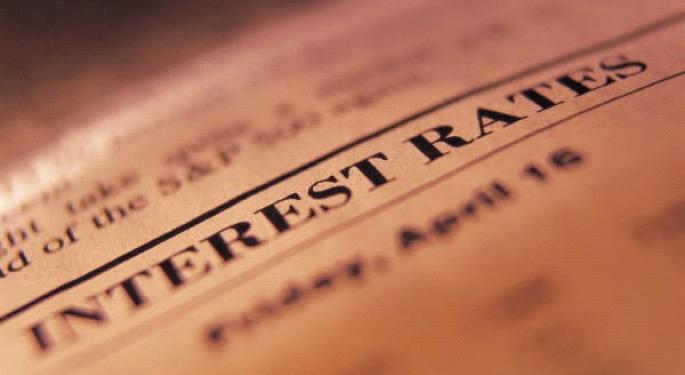Bank Of England Holds Interest Rates At 0.5%
The Bank of England held interest rates steady at 0.5 percent and also left its 200 billion pound ($325 billion) asset purchase program unchanged on Thursday, a widely anticipated move amid recent improvement in the British economy.
The decision by the bank's Monetary Policy Committee to stay its hand on both measures gives it some breathing room to assess the impact of last month's 25 billion pound boost to its monetary expansion effort, aimed at spurring the lagging economy.
While Britain is the only major economy still officially in recession, both the central bank and the government expect a return to growth by the turn of the year.
"The MPC has dished out many gifts to the economy throughout the year, so it was unsurprising that at its pre-Christmas meeting it thought it had done enough," said Stephen Boyle, head of RBS Group Economics. "These monetary policy presents, from low interest rates to quantitative easing, are gifts that will keep giving and will help get the economy back to its feet in the New Year."
Analysts now expect the bank to wait until its quantitative easing program, which boosts the money supply by effectively creating new money to buy assets, is completed in another two months before considering whether to expand the program.
"The scale of the program will be kept under review," the committee said. Detail on how the nine members voted will be revealed when the minutes of the two-day meeting are posted on Dec. 23.
Economists anticipate that interest rates will remain at the current record low level well into 2010.
In a similar move, the Swiss National Bank kept its key interest rate target at 0.25 percent, saying that recovery is still fragile. But the SNB did drop its offer to buy Swiss franc bonds issued by private sector borrowers.
In Iceland, the central bank cut its key lending rate a full point to 10 percent. The seven-day collateral lending rate had peaked at 18 percent in October last year as Iceland's banking system collapsed under the strain of a global credit crisis.
The central bank, Sedlabanki, said that if the Icelandic krona remains stable or appreciates, and if inflation continues to fall as forecast, "there should be scope for continued gradual monetary easing."
Denmark's central bank on Thursday trimmed its key lending rate by 0.05 percentage points to 1.20 percent. Denmark has not adopted the euro and will tweak its key lending rate when foreign currency markets push the krone up or down against the euro so as to keep the exchange rate steady.
In Britain, delaying any decision on quantitative easing until February also allows policymakers to take into account new growth and inflation forecasts due out before that meeting.
Policymakers had noted the fragile economy and the risk of inflation falling below the government's 2 percent target in the medium term when it added the extra stimulus last month.
Treasury chief Alistair Darling acknowledged in his pre-budget report on Wednesday that the economy will shrink by 4.75 percent this year, significantly worse that the 3.25-2.75 percent contraction he predicted at the time of the full annual budget in April.
But Darling and Bank of England Governor Mervyn King both believe that the economy will return to growth by the turn of the year, ending its worst recession since World War II.
The country's services sector, which accounts for nearly three quarters of the economy, expanded for the second consecutive month in November, suggesting improvement. And figures from the Council of Mortgage Lenders on thursday showed that mortgage approvals rose 43 percent year-on-year in October to the highest level since Dec. 2007.
However, economists warn that spiralling government debt levels could undermine Britain's still hesitant economic recovery. Darling increased his forecasts for government borrowing this year to 178 billion pounds this year and 176 billion pounds next year.
Charles Stanley Chief Economist Edward Menashy said that Darling "must hope, as we do, that the credit markets will continue to finance his debt mountain."
"Alas, this is a highly risky expectation which a prudent Chancellor should not rely on," Menashy added. "A potential sterling crisis would force up interest rates and guarantee an extended recession."
© 2024 Benzinga.com. Benzinga does not provide investment advice. All rights reserved.
Posted-In: Bank of England (BOE) Interest RatesPolitics Global Economics Intraday Update After-Hours Center



